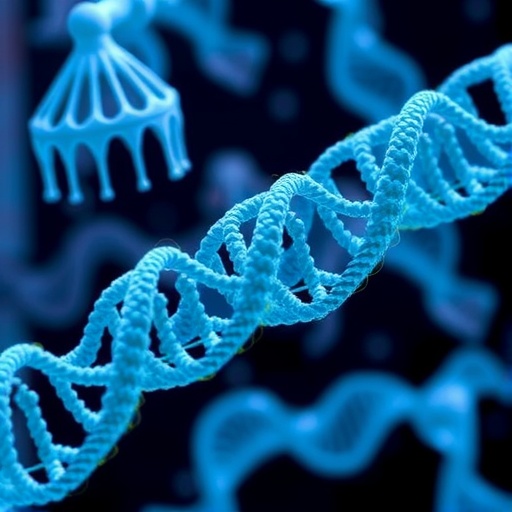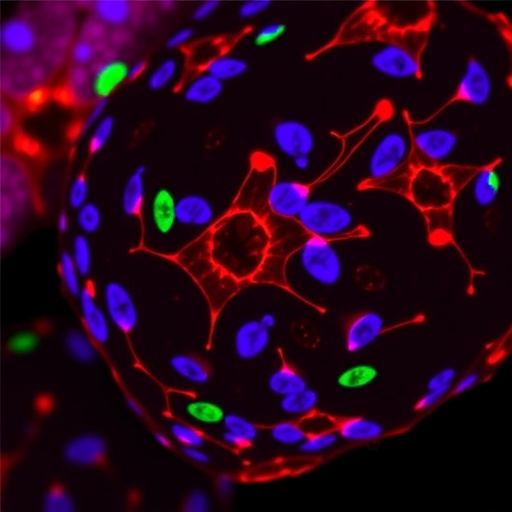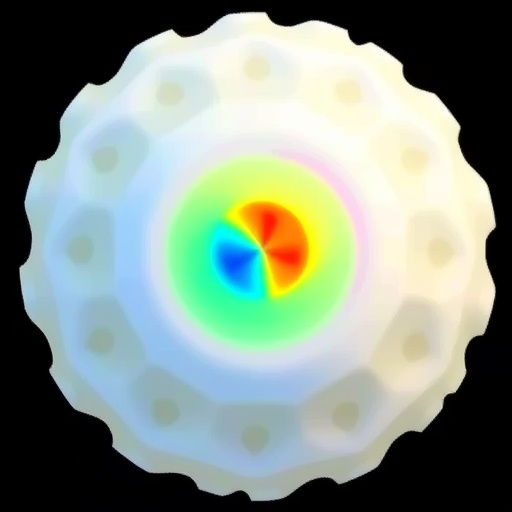PROTECT YOUR DNA WITH QUANTUM TECHNOLOGY
Orgo-Life the new way to the future Advertising by AdpathwayIn recent years, the urgent quest for effective cancer treatments has steered researchers towards an underexplored yet promising frontier: the potential of medicinal plants. In their pivotal study published in Molecular Diversity, Bansal and colleagues delve deep into the fascinating world of phytotherapy, harnessing both advanced metabolomic analyses and analytical tools to unveil the anticancer properties hidden within these natural treasures. This intricate intersection of traditional medicine and cutting-edge science is particularly vital as the global incidence of cancer continues to rise, challenging the limits of conventional treatments and prompting the exploration of alternative therapeutic avenues.
Medicinal plants have been employed in various cultures for centuries, renowned not only for their healing properties but also for their complexity in chemical composition. The study by Bansal et al. highlights that these plants serve as a rich source of bioactive compounds which possess the capacity to combat cancer through multiple mechanisms, including anti-inflammatory, antioxidant, and apoptosis-inducing effects. The researchers emphasize that as the landscape of cancer therapy evolves, integrating these plant-derived compounds can potentially complement and enhance existing treatment modalities, achieving a more holistic approach to patient care.
At the heart of their research lies metabolomics—a cutting-edge scientific discipline that compiles a comprehensive analysis of metabolites within biological specimens. For the first time, Bansal and colleagues demonstrate how this analytical technique can systematically map out the intricate network of metabolite profiles present in medicinal plants. By employing various analytical tools, such as mass spectrometry and nuclear magnetic resonance, the team meticulously identifies active constituents that contribute to anticancer activity. This enables not only the understanding of the pharmacological potential of these compounds but also the refinement of their therapeutic applications.
The researchers also bring to light the compound diversity found within plant species, underscoring the importance of conducting extensive phytochemical screenings. Through these assessments, they identified several key compounds with potent anticancer capabilities, including flavonoids, alkaloids, and terpenoids. Such compounds have been shown to inhibit cancer cell proliferation, induce cell cycle arrest, and trigger programmed cell death, providing a multifaceted approach to cancer treatment. The paper details how this dynamic array of chemical constituents allows for the possibility of synergistic effects when plants are used in combination, potentially maximizing therapeutic outcomes.
Moreover, Bansal et al. stress the significant role of traditional knowledge and ethnopharmacology in guiding modern research. Many ancient cultures have documented the uses of various plants in treating ailments, including cancer. By integrating this ancestral wisdom with contemporary scientific methods, researchers can more effectively target the bioactive compounds responsible for therapeutic effects. This holistic approach not only bridges the gap between tradition and modernity but also champions the importance of preserving indigenous knowledge in an increasingly globalized world.
A compelling aspect of the study is its advocacy for sustainable practices when utilizing medicinal plants. With a growing awareness of the importance of biodiversity, the authors caution against over-harvesting wild species, highlighting the need for responsible cultivation. This is particularly paramount given that many valuable plants are endemic to specific regions and ecosystems. Through sustainable harvesting and cultivation practices, researchers can ensure the continued availability of these vital resources while promoting biodiversity conservation.
The research also addresses challenges related to bioavailability and the pharmacokinetics of plant-derived compounds. Many bioactive metabolites show limited absorption and efficacy when administered orally. The authors propose innovative solutions, such as nanoparticle formulations and enhanced delivery systems, to overcome these barriers and improve the therapeutic potential of medicinal plants. By focusing on innovative methodologies in drug formulation, the researchers pave the way for a new generation of phytopharmaceuticals that can be seamlessly integrated into existing treatment protocols.
A key highlight from the study is the emphasis on the collaborative synergy between phytochemical research and clinical applications. The authors envision a future where traditional plant medicines are widely accepted within the realms of oncology, supported by rigorous scientific validation and clinical trials. Such an integration will not only benefit patients seeking holistic care options but also provide a robust foundation for developing novel cancer therapies derived from nature. The study shines a light on the promising implications for patient outcomes, particularly concerning quality of life and treatment resilience.
As the research landscape evolves, Bansal et al. call for increased investment in this area—particularly in terms of funding for clinical trials that focus on herbal medicines and their effects on cancer treatment. They passionately advocate for a united front among oncologists, pharmacologists, and herbalists to create collaborative frameworks that foster knowledge exchange and interdisciplinary research. This will drive a more nuanced understanding of how medicinal plants can be effectively utilized in modern oncology.
The insights derived from this research are not merely academic; they bear significant implications for global health initiatives aimed at combatting cancer. With the World Health Organization continuously highlighting the increasing burden of cancer across various demographics, leveraging the advancements in metabolomics and phytomedicine could redefine cancer treatment paradigms worldwide. There exists a critical need for the medical community to embrace and explore these avenues further.
In conclusion, Bansal, Alaseem, Babu, and their team are at the forefront of a groundbreaking movement—one that acknowledges the extraordinary potential of medicinal plants while merging it with state-of-the-art scientific methodologies. Their study, which meticulously investigates the intricate networks of metabolites in medicinal flora, offers a hopeful glimpse into the future of cancer treatment. As the realms of traditional medicine converge with modern scientific inquiry, we find ourselves on the precipice of a new frontier in cancer therapeutics, promising enriching avenues for patient care and improved health outcomes.
This pioneering research stands as a clarion call to the scientific community and society at large to recognize and invest in the underexplored potential of plant-based therapies, thus pushing the boundaries of what is possible in the fight against cancer.
Subject of Research: Anticancer potential of medicinal plants
Article Title: Unveiling the anticancer potential of medicinal plants: metabolomics and analytical tools in phytomedicine
Article References:
Bansal, N., Alaseem, A.M., Babu, A.M. et al. Unveiling the anticancer potential of medicinal plants: metabolomics and analytical tools in phytomedicine. Mol Divers (2025). https://doi.org/10.1007/s11030-025-11362-9
Image Credits: AI Generated
DOI:
Keywords: Anticancer, medicinal plants, metabolomics, phytomedicine, bioactive compounds, herbal medicine, cancer treatment, ethnopharmacology, sustainability, phytotherapy.
Tags: alternative therapeutic approaches for canceranti-inflammatory effects of plantsanticancer properties of phytotherapyantioxidant properties in cancer preventionapoptosis-inducing mechanisms in cancer cellsbioactive compounds from plantscomplexity of medicinal plant chemistryholistic patient care in oncologyintegrating plant-derived compounds in treatmentsmedicinal plants for cancer treatmentmetabolomics in cancer researchtraditional medicine and cancer therapy


 3 hours ago
3
3 hours ago
3





















 English (US) ·
English (US) ·  French (CA) ·
French (CA) ·